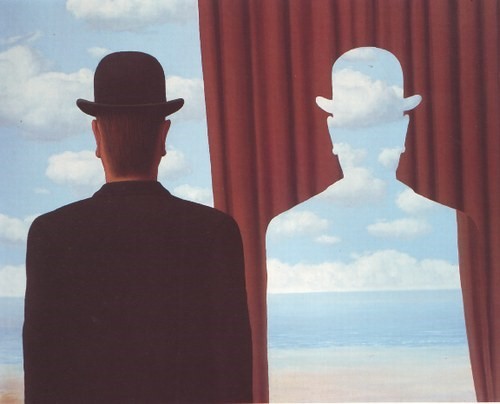Why do we classify perceptions in opposite categories (either good/bad, black/white)?
Thank you, Orsolya Kárpáti, for these two great questions. They are so deep that they require books worth of answers, which would draw from fields of history, technology, religion, culture studies, and psychology. Why? Let’s start with a better understanding of what cosmologies are.
We can break the word ‘cosmology’ into two others: ‘cosmos’ and ‘logos’. The word ‘cosmos’ is derived from ancient Greek ‘kosmos’, which meant ‘order’ and ‘all creation’. ‘Logos’ is also an old Greek word and has gained many meanings throughout the history of thought, but is now commonly used to express a system of knowledge. Cosmology is therefore a theory that we use to understand the universe as a whole, ordered in a system of knowledge.
Cosmologies as theories evolve alongside civilizations and cultures, and I think that your first question touches upon this “grand” understanding of cosmologies. We could rephrase it into: Why the Western, dualistic cosmology dominates other cosmologies, which are not necessarily dualistic (e.g. Taoism or Hinduism)? It would then turn out to be a question about domination of Western culture, which is caused by factors of globalisation, and digital and technological revolution. But it would also require an answer through the history of colonisation and the awful crimes it anticipated, which included the devastation of other cultures and cosmologies. You could also ask another historical question: Why is the dominant, Western cosmology dualistic? This would bring us back to ancient Greece, and thinkers like Plato who was, I dare to say, the most famous dualist. Another philosopher called Whitehead noted that mainstream philosophy is essentially a footnote to Plato. This statement was to critique the dualism that persists in Western philosophy to this day. Christianity also conceives of the world in a dualistic way, which helped cement this kind of cosmology as a dominant way of thinking in Western culture.
Your second question asks about how we make use of cosmologies on a daily basis. The world we live in is extremely complex, so when we perceive things we immediately put them into categories which simplify reality, just to make sense of our surroundings. If we happen to grow up in a culture that conceives of the world in a dualistic way, we interpret what we see accordingly. Here, I’d like to raise a red flag on how dangerous dualism can be when used in certain contexts. If we, let’s say, observe moon, we know that it orbits around earth due to gravitation, making use of Newtonian cosmology, which is also dualistic. Two bodies – one here, one there – makes sense and is useful for science! BUT what happens if we use this oversimplification of reality in a political context? Populist politicians often use this rhetoric for political gain – e.g. Trump using the rhetoric of us (Christians) and others (Muslims), corresponding with good and bad, to impose the infamous “Muslim ban”. Another example would be Brexit politicians using us (British people) against them (immigrants).
We have always used and always will use certain systems of knowledge, which simplify the reality that surrounds us. They are usually dependent on the civilizations and cultures we live in. These systems are useful to make sense of the world, but we have to remain critical towards our habits of thinking, so as not to harm others by categorizations.
What do you think? Is dualism a useful or harmful cosmology? Let us know in the comments.
And, as always, if you have a question for the Armchair Philosophers, don’t hesitate to get in touch. You could send us a message or fill in this form.
If you like what we do, you can support us by buying us a coffee!
Image: Decalcomania, by Rene Magritte (1966) (credit)
I am a PhD candidate in Political and Social Thought at the University of Kent, Canterbury. I am researching modern Western cosmologies and approaches to organicism. My interests lie in the area of continental political thought, process ontologies and the philosophy of technology. My favourite philosophers are A.N. Whitehead and F.W.J. Schelling, whom I admire for their organic systematizations of nature and natural knowledge.


I loved the explanations!! Thank you!!